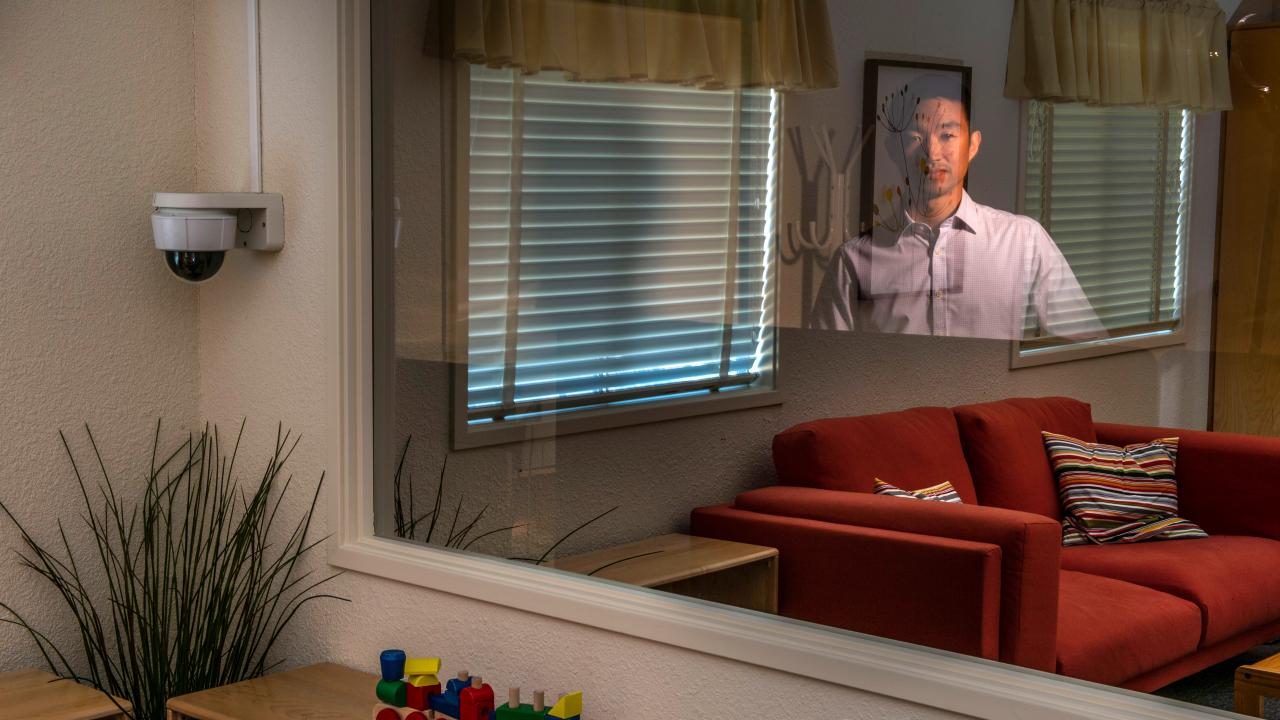
Improving Human Health from Inside and Out
Even when he was a boy growing up in Marin County, Daniel Choe wondered why some kids were more prone to behavioral problems.
“Some of my peers got involved with drugs, fighting and crime,” said Choe, who is now an assistant professor in the CA&ES Department of Human Ecology. “I felt bad seeing them damage their minds and bodies and futures. In retrospect, I see it gave me empathy for why people make certain choices. It made me wonder, ‘How can we prevent and treat behavioral problems so people can lead more fulfilling lives?’.”
That question drives Choe to this day as he builds an innovative child development program at UC Davis, where he was hired in 2014. Choe is exploring which experiences in early childhood can contribute to mental health problems later in life. He looks at family and neighborhood influences, such as poverty and violence, and a child’s capacity to “self-regulate” or manage their emotions and behavior in stressful situations.
“We have a lot to learn about how self-control and social competence allow children to suppress problem behaviors and overcome environmental stressors,” said Choe. “But interventions that only target self-regulation are not a panacea. Aside from individual differences in people’s ability to cope, there are also systemic, institutional reasons why certain populations are at greater risks for breaking the law. We need to look at it as a whole. To build healthy communities, we have to first meet people’s basic needs.”
Marshmallows and delayed gratification
In the early 1970s, Stanford psychologist Walter Mischel launched a long-term study on delayed gratification that still informs the study of self-regulation.
“It’s called the marshmallow test, though we don’t use marshmallows anymore,” Choe said. “They’re considered a choking hazard.”
The experiment works like this: A child about 4 to 6 years old sits in a room with a small treat. The youngster is given the option of eating it now or getting two treats if he or she can wait maybe 15 minutes. Decades later, researchers discovered that the children who waited longer for the reward were significantly more likely to lead healthy and successful lives as measured by things like Body Mass Index, SAT scores, lucrative jobs and stable relationships.
“The positive effects of early self-regulation were more powerful than children’s IQ and family income in predicting success later in life,” Choe said.
Choe recently received a UC Davis Hellman Fellowship Award, which supports early-career faculty, to investigate the development of self-regulation in children and families in Yolo County. Choe’s lab uses a form of the marshmallow test along with other methods to assess impulse control and resilience to adversity. Choe also studies intergenerational family dynamics, because how we were raised influences our own parenting behavior. And he measures parental stress and maternal mood.
“A mother’s depression is a risk factor for a whole host of problems, including difficulties self-regulating,” Choe said. “That’s why addressing institutional issues—like adopting reasonable family leave policies—is so important to child welfare. It’s all connected.”
Trust matters
Trust plays a big role in self-regulation and the choices we make.
“Sometimes, what looks like a bad decision can be perfectly reasonable based on experience,” Choe said.
Over the years, psychologists have conducted variations of the marshmallow test. In one permutation, some children worked with a trustworthy adult and others did not.
“The untrustworthy adult would promise to bring the child nice crayons, for example, and show up with a few broken pencils,” Choe said. “They would promise other things, too, that they never delivered.”
When the untrustworthy adult gave children the option of a treat now or two treats later, many youngsters ate the treat that was in front of them, regardless of their ability to self-regulate.
“When a promise is likely to be broken, we choose what’s immediately available,” Choe said.
Context is everything when seeking to treat and prevent behavioral problems. Choe says parents can help children develop self-regulation by providing a safe, loving, predictable environment. Schools and workplaces can offer meditation to help people manage stress.
“But for people dealing with basic survival, who are wondering where they might find their next meal, meditation isn’t enough,” Choe said. “To improve mental health, our society must also address larger issues like education and income inequality.”
That’s where working together can help.
“I love being at UC Davis and in this college,” said Choe, who is also a faculty affiliate with the UC Davis Center for Poverty Research. “There is a commitment to collaboration and service to improve people’s lives. Together, maybe we can make a difference.”